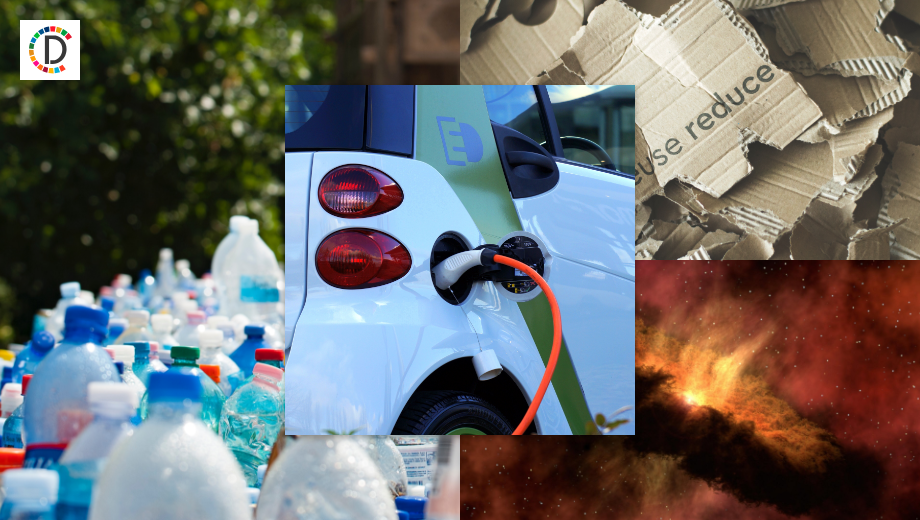ANALYSIS-BP's stranded Canadian, Angolan assets expose wider industry risks
When BP slashed its long-term oil price outlook last week, prospects in Canada and Angola were rendered worthless, company sources and analysts said, exposing broader risks the industry faces as the world pivots to low-carbon energy. The $17.5 billion write-down, part of Chief Executive Bernard Looney's drive to wean BP off fossil fuel, was the biggest the London-based company booked since the aftermath of the 2010 Deepwater Horizon disaster.

When BP slashed its long-term oil price outlook last week, prospects in Canada and Angola were rendered worthless, company sources and analysts said, exposing broader risks the industry faces as the world pivots to low-carbon energy.
The $17.5 billion write-down, part of Chief Executive Bernard Looney's drive to wean BP off fossil fuel, was the biggest the London-based company booked since the aftermath of the 2010 Deepwater Horizon disaster. BP lowered its long-term oil price outlook from about $70 a barrel to $55, slashing the value of its $14.2 billion early-stage exploration portfolio by two thirds. It also wrote down $8 billion to $11 billion in the value of producing assets.
BP did not detail which assets were rendered uneconomical by the price adjustment, but company sources said they included three areas, including resources in Canadian oil sands and ultra-deepwater wells off Angola, which involve high costs. An analysis by consultancy Rystad Energy also showed BP's exploration impairments would include mainly Canada and Angola.
A BP spokesman declined to comment. BP holds interests in three oil sands lease areas through the Sunrise Oil Sands project with Husky Energy, the Terre de Grace partnership with Value Creation and the Pike Oil Sands project with Canadian National Resources.
Canada's oil sands require complex and energy-intensive extraction processes that cause heavy carbon pollution. "We recognise that oil sands projects raise environmental challenges and we are actively seeking ways to undertake these projects while minimising the environmental footprint," BP said on its website.
BP's 2019 annual report said the Canadian oil sand exploration resource was valued at $2.5 billion, while Angola's so-called "intangible assets" were valued between $1 billion to $2 billion. "BP's revision makes their oil price outlook more realistic," said Parul Chopra, vice president for upstream research at Rystad Energy.
"Oil sand projects in Canada have breakevens more than $45 per barrel and many ultra-deepwater projects in Angola, Brazil and the U.S. Gulf of Mexico have similar high breakeven prices." STRANDED ASSETS
BP's new forecast of $55 a barrel, an average for the benchmark Brent oil until 2050, is much lower than assumptions made by several rivals, some of whose forecasts are $70 or more, suggesting they face the risk of large impairments in future. The lower forecast highlights the risk of stranded assets, or oil and gas resources that can not be tapped if the world wants to meet targets in the 2015 Paris climate agreement to reduce carbon emissions to net zero by the end of the century.
Looney's predecessor Bob Dudley had previously dismissed the idea that BP had stranded assets. Long-term price forecasts vary across the industry. At the lower end of the scale, the International Energy Agency lists an average oil price of $59 a barrel in 2040, based on its sustainable development scenario calculated against 2018 prices.
Meanwhile, Spain's Repsol booked 5.7 billion euros in upstream asset impairments, even when assuming oil would rise to $87 in 2035. A Shell spokeswoman said its financial outlook was based on an oil price of about $65 by 2025.
Equinor assumes a price of $80 in 2030. A spokesman for the Norwegian state-owned oil company said cutting the assumption to $50 would reduce Equinor's net present value (NPV) by 17%. Italy's Eni lists $70 as its long-term oil price assumption, although Eni Chief Executive Claudio Descalzi said the firm still did not have stranded assets in a $50 scenario.
"The clock must be ticking on the assumptions used at Eni and in particular Equinor," said Andrew Grant at think-tank Carbon Tracker, which estimates oil majors would have to cut output by 35% from 2019 to 2040 to meet Paris targets.
(This story has not been edited by Devdiscourse staff and is auto-generated from a syndicated feed.)
ALSO READ
Senior US treasury officials to urge India to maintain implementation of Russian oil price cap
Senior US diplomat links AUKUS submarine pact to Taiwan
Senior US treasury officials to urge India to maintain implementation of Russian oil price cap
Motor racing-Russell says F1 risked opening 'can of worms' with Alonso incident
Data Ingenious Global Limited Celebrates its Remarkable Silver Jubilee










